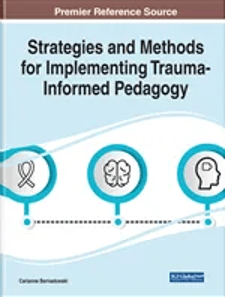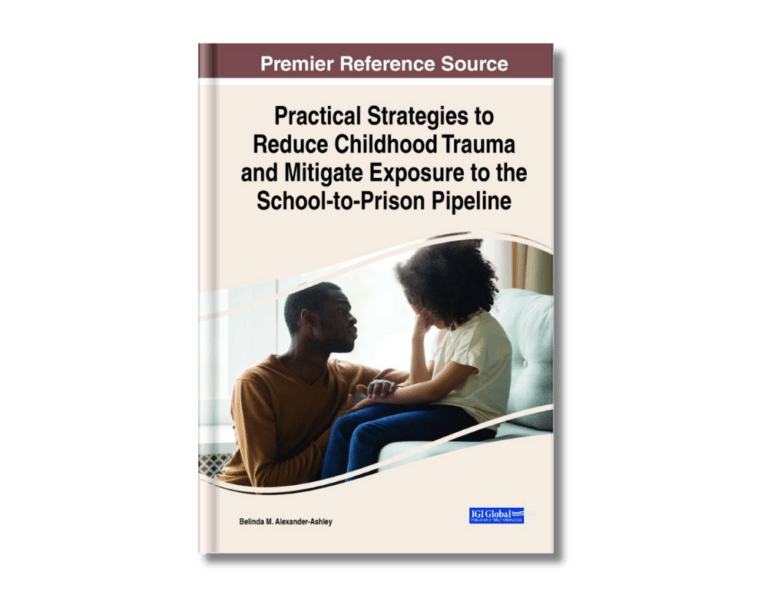Academic
Strategies and Methods for Implementing Trauma-Informed PedagogyPremier Reference Source
The Battle of Honey Springs victory cost generations of trauma and created a legacy of pain and loss for former slave and war hero William “Mr. Billy” Green that will require the resilience and tenacity of 14-year-old Aponia Monarch to restore what was taken from Mr. Billy and his family.
Belinda Alexander-Ashley, PhD., is a featured author in Chapter Seven titled, “Reducing Mass Incarceration Through Trauma-Informed Pedagogy”.
Belinda Alexander-Ashley, PhD., is a featured author in Chapter Seven titled, “Reducing Mass Incarceration Through Trauma-Informed Pedagogy”.
ABSTRACT: Chapter Seven outlines strategies and practices that align with the Substance Abuse and Mental Health Services Administration’s trauma-informed approach applied to school pedagogy in the United States to minimize or prevent trauma, especially for students referred to the school-to-prison pipeline, consequently reducing mass incarceration. With the onset of the COVID-19 pandemic in 2020, the United States’ health crisis exposed a vulnerability for people of color, poorer communities, and those incarcerated, stressing a need to respond expediently to address trauma in marginalized communities. The Adverse Childhood Experiences Connection in 2016 referred to childhood trauma as “America’s hidden health crisis.” Focusing on trauma for school-aged youth offers a path to preventing or minimizing trauma. Research suggests that more robust, multidisciplinary research, with an intentional purpose to transform teacher practices and responses to disciplinary conduct, is needed (Thomas et al., 2019).



